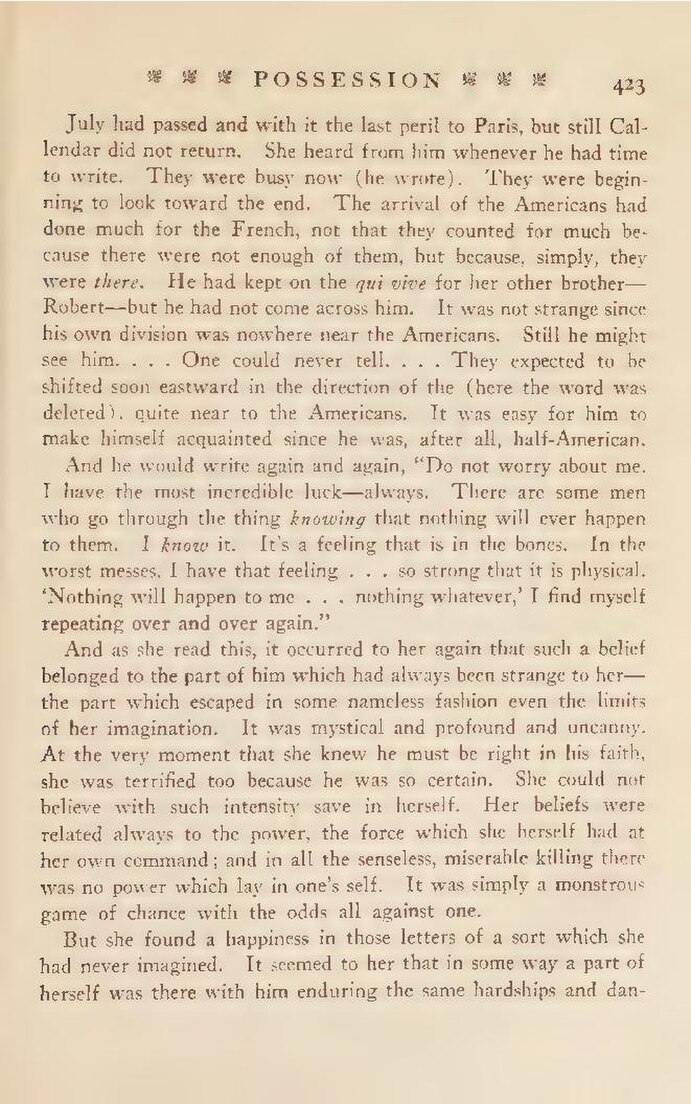July had passed and with it the last peril to Paris, but still Callendar did not return. She heard from him whenever he had time to write. They were busy now (he wrote). They were beginning to look toward the end. The arrival of the Americans had done much for the French, not that they counted for much because there were not enough of them, but because, simply, they were there. He had kept on the qui vive for her other brother—Robert—but he had not come across him. It was not strange since his own division was nowhere near the Americans. Still he might see him. . . . One could never tell. . . . They expected to be shifted soon eastward in the direction of the (here the word was deleted), quite near to the Americans. It was easy for him to make himself acquainted since he was, after all, half-American.
And he would write again and again, "Do not worry about me. I have the most incredible luck—always. There are some men who go through the thing knowing that nothing will ever happen to them. I know it. It's a feeling that is in the bones. In the worst messes, I have that feeling . . . so strong that it is physical. 'Nothing will happen to me . . . nothing whatever,' I find myself repeating over and over again."
And as she read this, it occurred to her again that such a belief belonged to the part of him which had always been strange to her—the part which escaped in some nameless fashion even the limits of her imagination. It was mystical and profound and uncanny. At the very moment that she knew he must be right in his faith, she was terrified too because he was so certain. She could not believe with such intensity save in herself. Her beliefs were related always to the power, the force which she herself had at her own command; and in all the senseless, miserable killing there was no power which lay in one's self. It was simply a monstrous game of chance with the odds all against one.
But she found a happiness in those letters of a sort which she had never imagined. It seemed to her that in some way a part of herself was there with him enduring the same hardships and dan-
